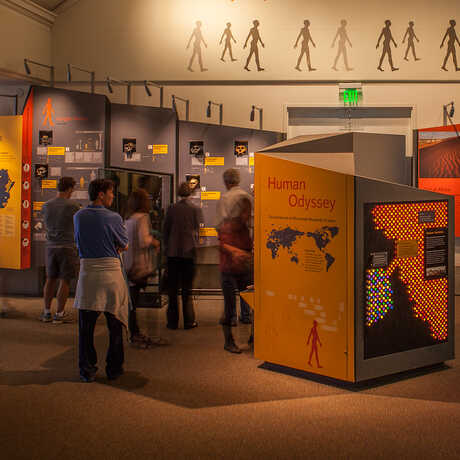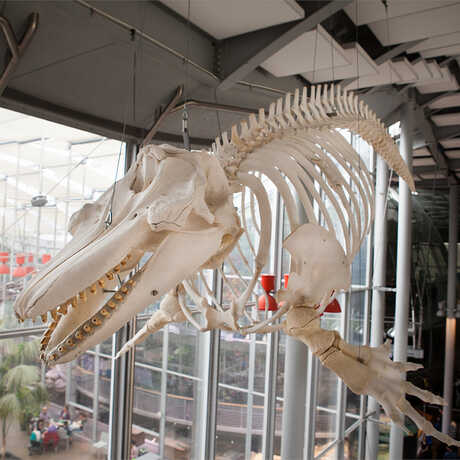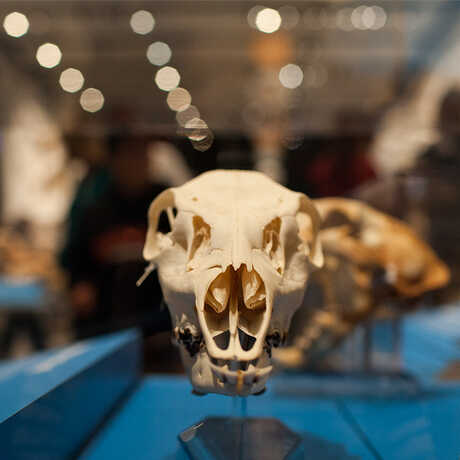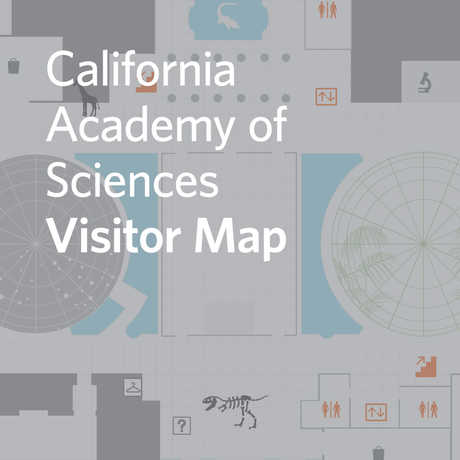Visit an aquarium, planetarium, rainforest, and natural history museum—all under one living roof.

The 400 California sea lion skulls that gaze down from an enormous, undulating wall represent only about one-sixth of the Academy’s scientific collection of sea lions. The size of these holdings—the largest in the world—makes them enormously valuable to science, allowing researchers to study the health of California’s sea lion population and the impacts of pollution, disease, and other threats.
But while large collections are vital to science, even individual skulls have important things to say—and sometimes a skull isn’t quite what it seems. Keep an eye out for imposters in the Sea of Skulls … keen vision (and good ears) will help you find the warthog, wolf, walrus, and others hidden among the Zalophus californianus.
Academy scientists partnered with Google to image specimens from our research collections using an advanced, automated 3D technique. The results? Jaw-dropping.
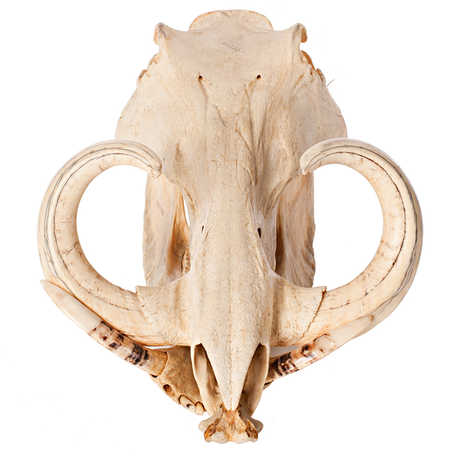
For more than 60 years, Academy field associate Raymond Bandar (1927-2017) collected thousands of skulls. In a ten-case display curated by “Bones” Bandar himself, visitors to the Naturalist Center can explore a variety of skulls featuring curious traits and abnormalities.
